Nepal’s HIV Programs Face Collapse as Foreign Aid Dries Up, Officials Warn

Kathmandu, Nepal – Nepal’s national fight against HIV is facing an existential threat, with critical programs at risk of collapse due to the dramatic retreat of international donor funding, including significant cuts from USAID. This stark warning emerged from an exclusive high-level interaction on June 27, 2025, where health officials and advocates convened with a select group of journalists in Kathmandu to reveal the looming public health crisis.
The “Journalist Interaction on the Current Status of the HIV Program in Nepal,” organized by the Society for Health Advocacy (SFHA) with support from the AIDS Healthcare Foundation (AHF), brought together 66 participants including journalists from 50 different media outlets. The unprecedented gathering aimed to provide an unvarnished look at the program’s precarious future and mobilize media support to avert a potential surge in new infections.
Meanwhile, Arjun Adhikari, Chairperson of SFHA, opened the session, emphasizing the urgent need for media engagement to reverse persistent HIV-related stigma and ensure the very survival of the nation’s HIV programs. His remarks set a somber tone for discussions that laid bare Nepal’s heavy reliance on external aid and the perilous consequences of its withdrawal.
In the meantime, Jyoti Thapa, project focal person at Hamro Saman Pahuch, painted a grim picture of community-level struggles. She detailed how people living with HIV (PLHIV) continue to face profound barriers to accessing treatment and maintaining dignity amidst societal stigma. More alarmingly, Thapa highlighted disruptions in essential prevention services, including critical shortages of condoms and the growing unavailability of PrEP (pre-exposure prophylaxis), a vital tool for reducing transmission.
“When we can’t access condoms or PrEP, we’re left unprotected—not just medically, but socially and economically,” Thapa stated, her voice conveying the urgency of the situation. “This is not just about medicines. It’s about survival, inclusion, and dignity.”
She strongly urged the government to intervene immediately, prioritize HIV prevention policies for key populations, and invest sustainably in community-led responses.
Public Health Administrator Ms. Ashmita Ojha of the National Centre for AIDS and STD Control (NCASC), presented updated national figures: 34,337 individuals are currently living with HIV/AIDS in Nepal. She reiterated Nepal’s profound dependence on external donor funding for prevention commodities and antiretroviral drugs.
Ojha warned that if access to these crucial, low-cost services dwindles, infection rates among high-risk groups could surge dramatically. Despite a national network of 92 Antiretroviral Therapy (ART) centers, their continued operation is increasingly difficult due to reduced donor support, a situation she called unsustainable without urgent domestic resource mobilization.
During the interactive session, journalists challenged the officials on service accessibility, discrimination in rural areas, and government accountability. In response, Dr. Sarbesh Sharma, Director of NCASC, estimated 614 new HIV/AIDS cases and 569 deaths annually. He identified key populations, including sex workers, intravenous drug users, incarcerated individuals, men who have sex with men, and transgender people, as particularly vulnerable.
Acknowledging the past challenges with separate, project-based services, Dr. Sharma emphasized the current strategy: integrating services into the national 92 ART centres as the most effective path toward sustainable goals. He stated that prevention of mother-to-child transmission, comprehensive testing, and viral load monitoring would be prioritized.
While the full impact of funding cuts is not yet fully manifest, Dr. Sharma warned that it would become “observed in the next 4-5 years.”
He concluded with a resolute declaration: “Relying on foreign aids and programs for solving our national health issues does not provide a long-term solution; therefore, our focus is to provide service independently, and we hope the government plans and programs go accordingly.”
This exclusive briefing serves as a critical alarm for Nepal, highlighting a looming health crisis that demands immediate and comprehensive government action. The collaboration between health advocates and journalists aims to pivot public discourse and galvanize the necessary political will to ensure the long-term sustainability of Nepal’s HIV program in the face of diminishing global support.
क्याटेगोरी : English, समाचारट्याग : ##AHF Nepal, ##mohp nepal, ##SFHA, ##USAID, #HIV
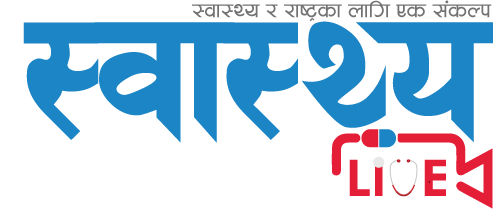




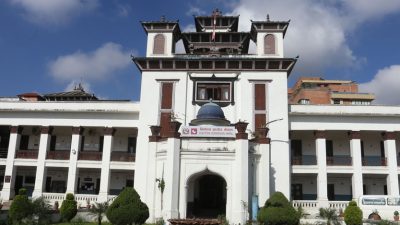
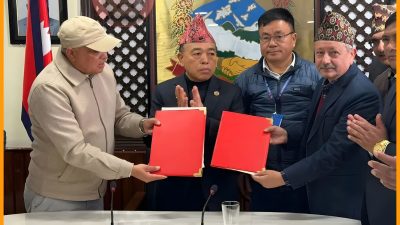
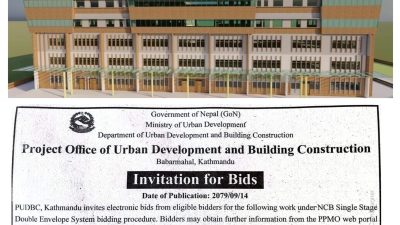
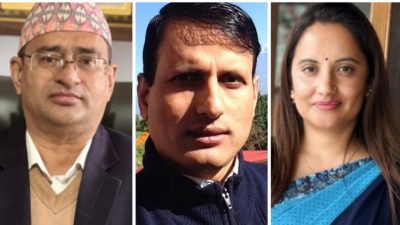
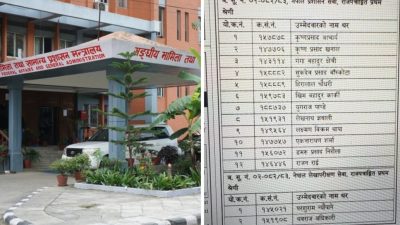


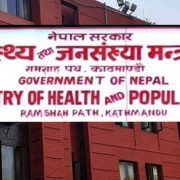
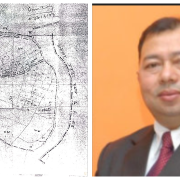
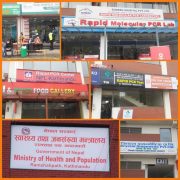
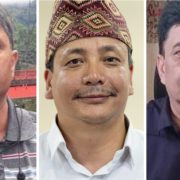
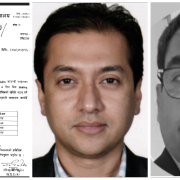
तपाईको प्रतिक्रिया दिनुहोस